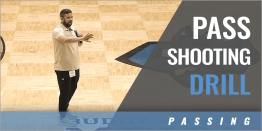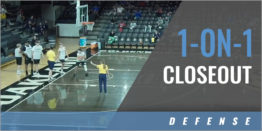|
By: John Klessinger - South River High School (MD) Accountability is a modern-day buzz word. It is thrown around team locker rooms, business meetings, and in schools. But what is it really. I am not sure if people actually get it or for that matter its importance. The Cambridge dictionary define accountability as "the fact of being responsible for what you do and able to give a satisfactory reason for it, or the degree to which this happens." I am sure if we think about it, we understand the definition. I am not here to belittle anyone's intelligence. Certainly, I am not the sharpest tool in the shed. However, I have been in the classroom as a teacher and on the mat as a coach for close to twenty-five years. From what I see, people don't get or understand it. I think people want to get it. I truly think people thrive in conditions that have high accountability individually and in groups. I have seen the some of the most challenging kids to work with excel when held accountable. Also, I have seen some of the "softest" kids turn into some of the toughest kids when expectations and standards were placed on them. It is quite amazing to be honest. Just by "saying what you mean, and meaning what you say" can completely transform an organization. I tell people that accountability is the secret sauce to achievement. If you want your son or daughter to be a good student, hold them accountable. If you want your team disciplined, hold them accountable. It is that simple. In wasn't until nearly 14 years into my teaching and coaching career that I got it. I finally understood the word that was "preached" in athletic circles my entire life. It was a revelation. Ok, that was dramatic but it was a serious eye-opener. I handed a paper to my wrestling that needed signed by a parent and returned the next day. Simple task. Give the paper to mom or dad and they sign their John Hancock. Put it in your book bag and give to Coach Klessinger tomorrow. It sounds simple but it wasn't. The next day only 3 of close to 35 wrestlers returned the signed document. Admittedly, I lost my cool. I didn't yell or berate them. I do not do that. It is not me. I told them to get on the short wall which meant conditioning. For the next hour or so, those young men had the toughest workout of their lives. I did it with them and can honestly say it was one of the toughest workouts I have had in my life. The next day, the other 32 wrestlers had their paper signed. I was amazed. How could something so simple be so effective? All it required me to do was have a consequence for a behavior. I tested the "new found" theory again the following week. Every one completed the short I assignment I gave them. I heard my team in the hallway before practice making sure everyone had their assignment. I thought to myself, "why haven't I done this before?" Team and individual accountability is powerful. I believe that day our program changed. We became tougher, more disciplined, and our work ethic got better. Accountability is the secret sauce of achievement. Below are ways for you to develop it in your program.
|






